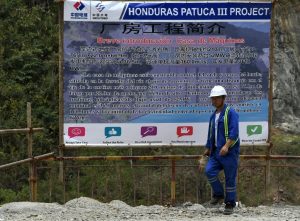The Chinese Communist Party’s (CCP) worldview and quest for domestic and international hegemony threaten to reverse Latin American and Caribbean’s democratic and market-based economic principles that have facilitated regional stability for nearly 30 years.
Beijing’s Latin America and Caribbean policy is based on China’s economic power, leading many observers to claim that its growing influence is also in the region’s economic interests and therefore benign. However, the CCP Politburo Standing Committee (PSC), the People’s Republic of China’s (PRC) core leadership cadre, is conducting a grand strategy employing a variety of instrumentalities — political, economic, psychological, and military — to achieve global hegemony.
For many observers, grand strategy is limited to military conceptions, creating a predisposition to ascribing benign views to non-military policies, resulting in complacency on the seriousness of threats and even doubt as to whether threats exists at all. This is because unlike traditional democratic political systems, the control of totalitarian governments over a country enables them to employ all its resources in support of their grand strategy.
Therefore, dividing the PRC’s diplomacy into economic, political, and military instrumental categories, while disregarding the PSC’s underlying purposes and objectives, risks paralyzing unified regional responses to the PSC’s efforts to translate its economic diplomacy into political influence.
The CCP justifies its domination of China by claiming, “only Socialism can save China.” Ideologically, the principles of democracy, human rights, and market-based economics directly threaten its control over the PRC. China’s three-decade long economic development enabled the Party to maintain and expand its control over Chinese society and expand its military power — contrary to many observers’ beliefs that it would reform domestically and moderate its foreign policy.
The CCP’s military buildup, intensification of domestic control, and recent expansionist foreign policy indicates that the PSC is acting on its global hegemonic ambitions and its sense of domestic and international insecurity simultaneously. The question therefore becomes, what will convince the PSC that the world is safe for the Party, as opposed to what can convince the PRC to be a responsible stakeholder of the global political order? It is here that Beijing’s Latin America and Caribbean economic diplomacy is linked to ensure the Party’s control over China and achieve global hegemony.
The CCP’s communist ideology espouses that domestic instability will lead to foreign interventions by capitalist countries seeking to destroy the Party. The PSC needs constant economic expansion to satisfy Chinese society enough to desist discontent from becoming too broad for the Party to repress. The Politburo compromised communist socioeconomic control when it used capitalist policies to relentlessly pursue four decades of economic growth just to keep domestic anti-Party sentiment at a simmer that risks billowing at the slightest perception of stagnation.
Lessons learned
The rapid collapse of the Soviet empire in 1991 taught the Politburo that economic crises combined with political reforms risked unleashing popular anti-party sentiment, and that the Party’s popularity and ability to maintain stability should not be overestimated. The 1989 Tiananmen crisis also made the Politburo aware of the Party’s organizational fragility in times of sociopolitical crisis after its internal leadership factionalized during the expansion of anti-government protests prior to the massacre and repression of mass anti-Party protests.

The Politburo’s drive for economic development in an ideologically and geopolitically hostile international system leads it to exercise a zero-sum view of Latin America and Caribbean trade relations.
For the Politburo, securing Latin American and Caribbean markets using legal and illegal methods is justified by its quest for domestic control. Accordingly, the PRC relies on neo-mercantilist trade policies: using state and party resources to subsidize exports and investment overseas, while protecting domestic industries from foreign competition.
The PRC’s mercantilist policies secure access to commodities to sustain its subsidized low-cost manufacturing exports it floods back into Latin American and Caribbean economies, which in turn make the region’s manufacturing industries uncompetitive against Chinese goods. Latin American and Caribbean efforts to improve their Chinese balance of trade would likely prove limited, as they would be demanding the end of Beijing’s economic and trade policies necessary to keep production costs below foreign rivals and used by the CCP to demonstrate tangible progress to its subjects.
The Politburo’s communist ideology and determination to ensure the Party’s control makes it willing to encourage corruption as an instrument to secure Latin American and Caribbean goods and markets. The CCP views democratic concepts such as citizen accountability, government transparency, and market-based economic principles as obstacles to the party’s interests.
All communist parties have relied on rewarding Party members’ loyalty with access to state and party resources; what would be considered corruption in democratic political conceptions is merely an instrument of maintaining party unity and even national security. Indeed, communist ideology defines crime as a capitalist phenomenon. The Party’s control over the Chinese economy also means that senior Party officials also rely on Latin American and Caribbean trade as a source of personal enrichment and political patronage.
The PSC aspires to translate this economic diplomacy into political power to influence the region’s long-term political orientation toward the Party’s geopolitical objectives. Senior Party officials’ frequent pronunciations of China’s impending rise to global hegemony, Beijing’s accelerating arms buildup, increasingly assertive foreign policy, and the triumphalist tone of its publications indicates that the PSC assesses it is closer to achieving its hegemonic objectives than any time before.
The PSC is likely not willing to risk turning the whole region against it by seeking a final showdown; its grand strategy is to take advantage of existing opportunities to gradually dismember the hemispheric system without provoking coordinated resistance. Beijing’s reliance on opportunism means that it is in the region’s power to limit China’s ability to expand its power and challenge Latin American and Caribbean stability and security.
* Fred Quintana is the senior analyst and program manager for the South America Counternarcotics program in the Resources and Analysis Directorate at U.S. Southern Command









